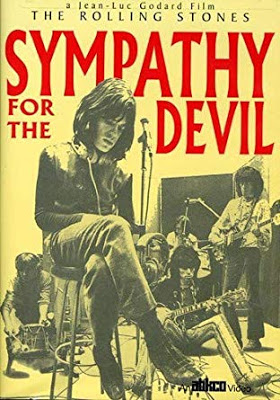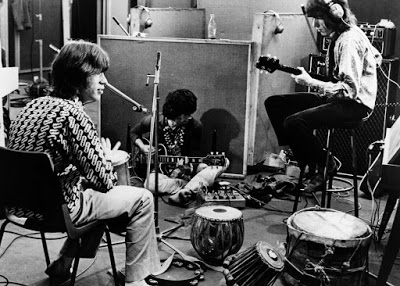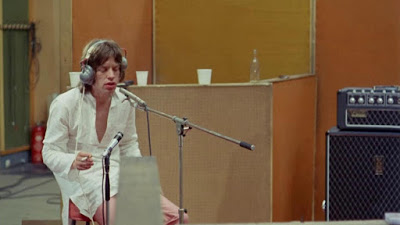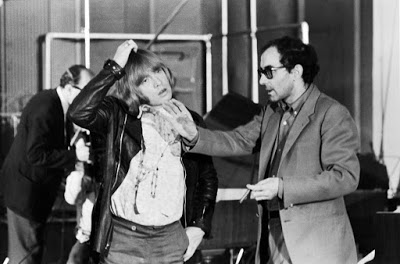The Rolling Stones: Sympathy
for the Devil

Director: Jean-luc Godard
Year: 1968
Rating: 5.0
Country: France
Back in my twenties I had pretenses of being part
of the intelligentsia which of course necessitated watching The French New
Wave films, and Jean-Luc Godard in particular. So, I saw some of his more
popular and accessible early films – Breathless, Contempt, Alphaville – but
as he became more and more experimental, I sort of fell off and found myself
more interested in genre films – as far from Godard as one can get. But when
I saw that he had made a documentary in 1968 on the Rolling Stones my curiosity
was piqued. I mean it is a documentary on the Stones – how could he mess
that up? The Stones were at an interesting point in 1968 – coming off what
many considered a misstep with Their Satanic Majesties Request in which they
were trying to keep up with the Beatles and numerous run ins with drug problems.
They had to find a way to put that behind them and find a new course in their
music.
Godard documents the creative process behind one song that they are working
on in the studio – the classic Sympathy for the Devil – and he follows their
attempts over a period of a few days I think (it is difficult to track time)
as the band works out the kinks of the song and gets it to where it is today.
It is quite interesting to watch. And the camera does simply that – a witness
from a distance – as it never interacts with the musicians – no interviews,
no analysis – and the musicians never note that there is a camera there.
This is Rolling Stones Classic – Jagger, Richards, Wyman, Watts and Brian
Jones. The album they are working on is Beggars Banquet – in my opinion their
first great album and the beginning of a run of four of the greatest albums
in rock.
Jagger brings in his song Sympathy for the Devil – the lyrics and the beat
he wants – and from that they slowly fill it in – the chorus, the guitar
solo from Richards, the lyrics change a bit and Jagger keeps refining how
he sings it. It is all work – no play – no fooling around – serious musicians
making a song work. All good right? Well, this is Godard, so not really.
Interspersed in all this and having absolutely nothing to do with the Stones
or their recording session is some awful political pieces that may have seemed
relevant back in 1968 when Revolution was in the air (though I sincerely
doubt it) but watching it today it seems like pure posturing and boring as
hell.
One bit has the Black Panthers in a junk yard mouthing political slogans
and killing white girls, another bit has reporters following a woman around
asking her questions to which she only answers yes or no and I think she
is suppose to symbolize “Democracy”, Godard’s wife goes around painting revolutionary
slogans all over London, there is a skit in a magazine store of comics, pulp
and porno in which little girls slap men and people do the Nazi salute –
and throughout the film – even over the Stones at times – a man reads from
a spy novel. That stuff made up about 50% of the film. Godard just could
not help being Godard.
I read that the producer took the film from Godard in the end and did two
things that infuriated Godard – he titled it Sympathy for the Devil while
Godard wanted to call it One Plus One – and the producer played the final
version of the song over the end credits. At a film festival Godard punched
the producer out. I felt like doing the same to Godard at times.





